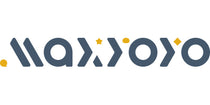The Benefits of Napping: Why a Short Siesta Can Boost Your Productivity
We live in a fast-paced world where productivity is often the measure of success. The idea of taking a nap during the day might seem counterintuitive, especially in a society that values hustle and long work hours. However, research has shown that a short siesta, or power nap, can be a game-changer for your productivity and overall well-being. In this blog post, we'll explore the science behind napping and the incredible benefits it offers.
The Science of Napping
Before delving into the benefits, let's understand the science behind napping. Our bodies have a natural circadian rhythm that influences our alertness and energy levels throughout the day. The afternoon slump, typically experienced between 2 p.m. and 4 p.m., is a result of this natural dip in alertness. It's during this time that a short nap can work wonders.
When you nap, you enter different stages of sleep, including light sleep and rapid eye movement (REM) sleep. The key is to wake up before you enter deep sleep, which can leave you groggy. A power nap of 10 to 20 minutes usually does the trick, allowing you to wake up refreshed and alert without feeling drowsy.
Boosts Alertness and Concentration
One of the most immediate benefits of napping is the boost in alertness and concentration it provides. After a nap, you'll likely find it easier to focus on tasks, problem-solve, and make better decisions. This is particularly valuable in the workplace, where mental acuity is essential for productivity.
A study published in the journal "Psychological Science" found that participants who took a 10-minute nap in the afternoon demonstrated improved cognitive performance, including better memory retention and increased alertness, compared to those who did not nap.
Enhances Creativity
Napping isn't just about recharging your energy; it can also enhance your creativity. During REM sleep, your brain is highly active, processing emotions and making connections between unrelated ideas. This can lead to creative insights and "aha" moments.
In fact, some of history's most brilliant minds were known to be avid nappers. Albert Einstein, for instance, often took short naps during the day to refresh his mind and stimulate creativity. So, if you're facing a creative block, consider taking a nap to unlock your inner genius.
Reduces Stress and Improves Mood
Stress is a common adversary in our modern lives, and it can wreak havoc on our productivity and mental well-being. Napping offers a simple and effective way to combat stress and improve your mood.
When you nap, your body releases neurotransmitters like serotonin, which are associated with feelings of happiness and relaxation. This can help reduce stress and anxiety levels, leaving you in a more positive state of mind. In addition, napping allows your body to recover from the physical and mental strain of the day, leaving you better equipped to handle stressors.
Enhances Learning and Memory
If you're a student or someone engaged in continuous learning, napping can be a powerful tool to enhance memory and retention. Research published in the journal "Nature Neuroscience" suggests that napping helps consolidate and strengthen memories acquired during the day.
During a nap, your brain replays and processes information, solidifying it in your long-term memory. This means that if you're studying for an exam or trying to master a new skill, a well-timed nap can significantly boost your learning capabilities.
Improves Physical Health
The benefits of napping aren't limited to mental health and productivity; they extend to physical health as well. Regular napping has been associated with a reduced risk of heart disease, improved immune function, and better overall health.
Naps can help lower blood pressure, reduce inflammation, and promote better cardiovascular health. Additionally, improved mood and reduced stress levels can contribute to a healthier lifestyle, as individuals who are less stressed are more likely to make better dietary and exercise choices.
MAXYOYO futon mattress is your nap assistant
MAXYOYO is a brand known for its Japanese floor mattresses, and we're referring to their product as a "nap assistant." Futon mattresses can indeed provide a comfortable and convenient surface for napping and sleeping.
Of course, there are other items available that are suitable for nap time. You can lean on the MAXYOYO Bean Bag Bed to sleep as if it were a Bean Bag chair with a wrapped comfort. If you like to sleep lying down, the Bean Bag chair can instantly transform into a Floor Bed. This multi-functional furniture is very homely, practical and cost-effective.
Another one, MAXYOYO Bean Bag Folding Sofa Bed is a combination of sofa and floor mattress. When folded, it becomes a sofa, and when unfolded, it becomes a floor mattress.
Conclusion
In a world where the pressure to stay constantly productive can lead to burnout and decreased performance, napping offers a refreshing and science-backed alternative. By taking a short siesta during the day, you can boost your alertness, enhance creativity, reduce stress, improve your mood, and even enhance your physical health.
So, the next time you're feeling that mid-afternoon slump, consider setting aside a few minutes for a power nap. It might just be the productivity hack you've been looking for, and the benefits will leave you wondering why you didn't start napping sooner.


Leave a comment